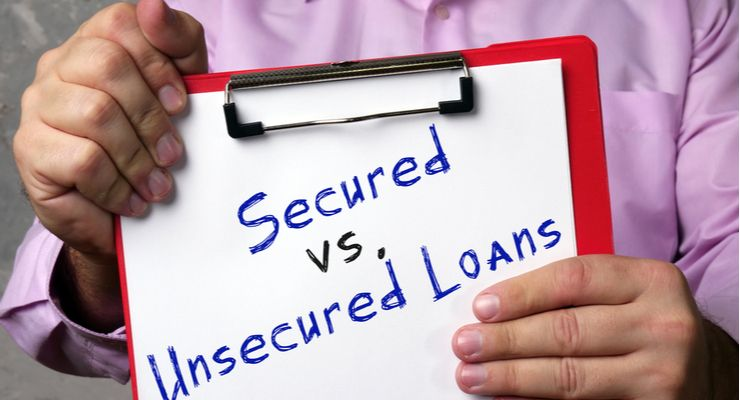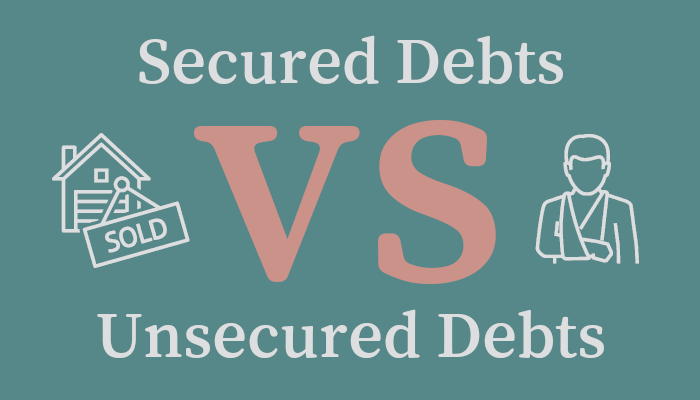Comparison Between Secured vs. Unsecured Debt
Jan 24, 2024 By Triston Martin
Introduction
Understanding the two debt types, unsecured vs secured debt, will help you make more informed decisions when taking on a loan. In this article, we’ll explore the differences between secured vs unsecured debt and provide some tips for managing each type of loan.
What Is Secured Debt?
Secured debt is any type of loan that is backed by collateral or an asset that guarantees repayment of the loan. The collateral serves as security for the lender if the borrower defaults on the loan. Home mortgages, car loans, and personal loans are all examples of secured debt. In a secured loan agreement, the lender holds the right to seize any assets used as collateral if the borrower fails to make payments on time or in whole. Since borrowers understand that they may lose their investment if they fail to repay the loan, it’s usually easier to secure financing with lenders who offer secured loans.
What Is Unsecured Debt?
Unsecured debt is any loan that is not backed by collateral. Credit cards, student loans, medical bills, and payday loans are all examples of unsecured debt. Lenders offering unsecured debt provide money without requiring any form of security from borrowers. Therefore, if a borrower defaults on loan payments, the lender has no legal right to seize any assets. Unsecured loans are riskier for lenders since they have no recourse if the borrower fails to pay. As a result, they often charge much higher interest rates and require higher credit scores from borrowers to compensate for this increased risk.
Comparing Secured vs. Unsecured Debt: Pros and Cons
There are several factors to consider when deciding between unsecured debt vs secured debt.

Pros of Secured Debt
- Lowered Interest Rates
Since lenders have collateral to back up the loan, they usually provide lower interest rates than those found on unsecured debt.
- Easier Approval Process
Lenders typically have an easier time approving secured loans since they have less risk involved. Additionally, borrowers with bad credit may find it easier to obtain a loan with collateral attached.
- Potentially Better Terms
Since lenders are protected by collateral, they may be more willing to negotiate better terms for secured loans. This could mean more extended repayment periods or lower monthly payments.
Cons of Secured Debt
- Collateral Required
One of the primary disadvantages of secured debt is that it requires you to put up some form of collateral as security for the loan. If you fail to make payments on time, you could lose this asset if the lender repossesses it.
- Difficult Refinancing
Refinance a secured loan can be very difficult since the lender must accept a lower value for the collateral.
- Limited Availability
Not all lenders offer secured loans, which makes it challenging to find one that suits your needs.
Pros of Unsecured Debt
- No Collateral Required
One of the main advantages of unsecured debt is that you don’t have to put up any form of collateral as security for the loan. No assets are put at risk if payments are not made on time.
- Easier Refinancing
It is much easier to refinance an unsecured loan since the lender does not need to assess the value of any collateral before approving it.
- More Options
You will often have more options available when looking for an unsecured loan since more lenders offer them.
Cons of Unsecured Debt
- Higher Interest Rates
Since there is no collateral to back up the loan, lenders must charge higher interest rates to compensate for the increased risk.
- Tougher Approval Process
Borrowers with bad credit may find it difficult to obtain an unsecured loan since lenders typically have stricter approval requirements.
- Limited Loan Amounts
As a result of the higher risk involved, most unsecured loans come with smaller loan amounts than secured loans.
Tips For Managing Secured vs. Unsecured Debt

Managing debt can be challenging, but here are some tips to help you better manage secured and unsecured debts.
- Make a Budget
Tracking your income and expenses is the first step to managing debt effectively. Create a budget that helps you identify how much money you can allocate towards monthly debt payments.
- Prioritize Payments
If you have multiple loans, prioritize which ones need to be paid off first based on their interest rates, repayment periods, and other factors.
- Monitor Credit Reports
Monitor your credit report closely to ensure that all of your loan information is accurate and up to date. This will help make sure that no discrepancies exist that could negatively impact your credit score.
- Seek Professional Help
If you have difficulty managing debt or making payments on time, seek professional advice from an accredited financial counselor.

Dec 02, 2023 Susan Kelly

Jan 01, 2024 Susan Kelly

Nov 19, 2023 Triston Martin

Feb 17, 2024 Triston Martin

Jan 03, 2024 Susan Kelly

Nov 08, 2023 Susan Kelly